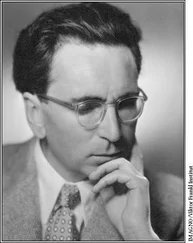Bacon waited for a few moments but quickly lost patience and asked two military policemen guarding the train depot what was going on. Nobody knew. A sudden silence fell upon them. Aside from a few railway workers—mainly POWs—whose job was to keep the train tracks in working condition, nobody there seemed to move an inch. In the distance, Bacon spotted a couple of officers and, a bit farther on, the railway station manager, but he figured they wouldn’t be much help. His only option was to walk to the Palace of Justice.
Bacon was furious. The autumn wind blasted against his face. The streets remained deserted as ever, as if people were still expecting air raids. Offended and annoyed, Bacon didn’t even bother to gaze at what remained of the city. At one time, it may have been the cradle of the great Meistersänger and, until recently, the proud home of the Nazi headquarters, but the war (and eleven Allied bombing raids) had reduced it to a city in ruins. Little piles of stones now lay where churches once stood; houses and buildings were now nothing more than minor, annoying obstacles in Bacon’s path—all these things well-deserved losses that were hardly worth mourning. Not far off—though it hardly even crossed his mind—was the museum that had once been Germany’s most important, as well as the house where Albrecht Dürer lived until his death in 1528. Now, of course, both were reduced to ashes and rubble.
As far as Bacon saw it, Nuremberg was nothing more than one of the hateful Nazi havens where thousands of young people had flaunted their gray shirts, waved their banners emblazoned with eagles, and brandished their giant torches with pride. There, they had paid homage to Hitler and venerated the swastikas which, just like prehistoric spiders perched upon their little eggs, crawled along the red ribbons that hung down from the public buildings of Germany. Every September, Nuremberg had been host to the Nazi party’s annual festival, and in 1935 the Führer chose this city as the site from which he would enact his anti-Semitic laws. Nuremberg, in addition, was also the repository of the Reichskleinodien and the Reichsheiligtümer, the ancient imperial heirlooms—and symbols of Nazi power—that he had stolen from the Hofburg in Vienna after the annexation of Austria. The celebrated Lance of Longines was among these treasures, all of which eventually became emblems of Aryan authority. As far as Bacon (and the International Military Court) was concerned, tears of sorrow and shame should be shed over the Jews who perished in Auschwitz, Dachau, and other concentration camps—not the justified punishment of one of the bastions of the Third Reich.
Bacon was on the verge of turning twenty-seven, but from the moment he arrived in Europe, in February of 1943, he had made a concerted effort to appear older, stronger, and more imposing than he was. He wanted to wipe the slate clean of all the weakness that had tortured him so in the past and which, to some degree, had forced him out of the United States. He could no longer even try to be the same respectable, reasonable, sincere man he had been before. By accepting this mission—and giving up his job as a scientist at the Institute for Advanced Study at Princeton—he could not only exercise his desire for vengeance but also prove to himself that he was now a new man. He was determined to prove that he was on the side of the winners, and so he exhibited not even the slightest morsel of compassion for the defeated.
From a distance, Bacon was barely distinguishable from the handful of American soldiers patrolling the area: dark brown hair worn in a military-style haircut, pale eyes, and an angular nose which he rather liked. He fancied himself as a man who wore his uniform with panache (actually, he was a bit stiff), and he went to great pains to display his various decorations, despite the physical discomfort they produced. Upon his shoulder he bore a bulky military backpack that contained almost all his earthly possessions: a few changes of clothing, some photographs (which he hadn’t dared look at since leaving New Jersey), and some old copies of Annalen der Physik , one of the more important journals in his field, pilfered from some or other library he had passed through.
In reality, Bacon had not gone to Nuremberg specifically for the executions. Initially, only thirty people had been granted permission to witness the event, but then General Watson invited him a bit later on, and he accepted enthusiastically. Bacon had been referred to Watson by General William J. Donovan, founder of the OSS and, for a few weeks, special assistant to the U.S. chief prosecutor at Nuremberg, Robert H. Jackson. (Not long before, in the wake of an acrimonious misunderstanding with Jackson, a veteran justice of the U.S. Supreme Court, Donovan had been forced to resign for having interviewed Hermann Goering without Jackson’s permission.) Bacon, however, was on a different, perhaps more pedestrian mission: His job was to study the recorded minutes of the copious testimonies relating to scientific research under the Third Reich, and ferret out any and all “inconsistencies,” to use the term favored by his superiors—that is, contradictions in the many statements made by the defendants.
The Palace of Justice was one of the few public buildings in Nuremberg that had survived the wartime bombings, and had recently been restored by Captain Daniel Kiley, a young Harvard architect also under the command of the OSS. Upon reaching the city center Bacon had little trouble identifying the building: Once protected by an ample plaza filled with trees, the large group of buildings featured archways on the ground floor, huge picture windows, and a series of pointed towers. The prison, located toward the back of the building, consisted of four rectangular blocks set in a half-moon, its exterior protected by a high semicircular wall. The Nazi prisoners were housed together in cell block C, steps away from a small chamber that was once a gymnasium but was now a gallows.
It was 9:15 when Bacon finally reached the security guards at the entrance to the Nuremberg military prison. After reviewing his credentials, the soldiers announced that they were under orders to bar all access to the building—most specifically, the gymnasium—until the executions were over. Bacon tried to explain that he had come on General Watson’s invitation, but the guards were impassive, and refused his request to summon Gunther Sadel: “General Rikard’s orders” was their only response.
Scores of journalists swarmed about the scene. Aside from the International Military Tribunal’s official photographer, only two reporters—chosen by lottery—were granted access to the gymnasium. All the others were forced to wait, just like Bacon, for the press conference that would announce the deaths of the war criminals. In an effort to scoop the story, several newspapers had already published early editions. The New York Herald Tribune , for example, had given the news a full, eight-column headline:
11 NAZI CHIEFS HANGED IN NUREMBERG PRISON: GOERING AND HENCHMEN PAY FOR THEIR WAR CRIMES
The executions were scheduled to take place in the afternoon, so Bacon still had a few hours to locate someone who might help him get in. Before anything else, however, he would go to the Grand Hotel, where a room had been reserved in his name. But bad luck seemed to dog his every step; when he arrived at the hotel, the manager declared that there were no rooms available. After patiently explaining that he was there on a special mission, Bacon asked to speak to the supervisor in charge, and a pompous bell captain cleverly rose to the occasion, becoming the de facto hotel manager for a moment, and quickly solved the problem: The hotel had not expected Bacon until the following day, when several rooms would be vacated (“The show ends today, you know?”). Since it was only for one night, however, room number 14—“Hitler’s room”—could be made available.
Читать дальше












